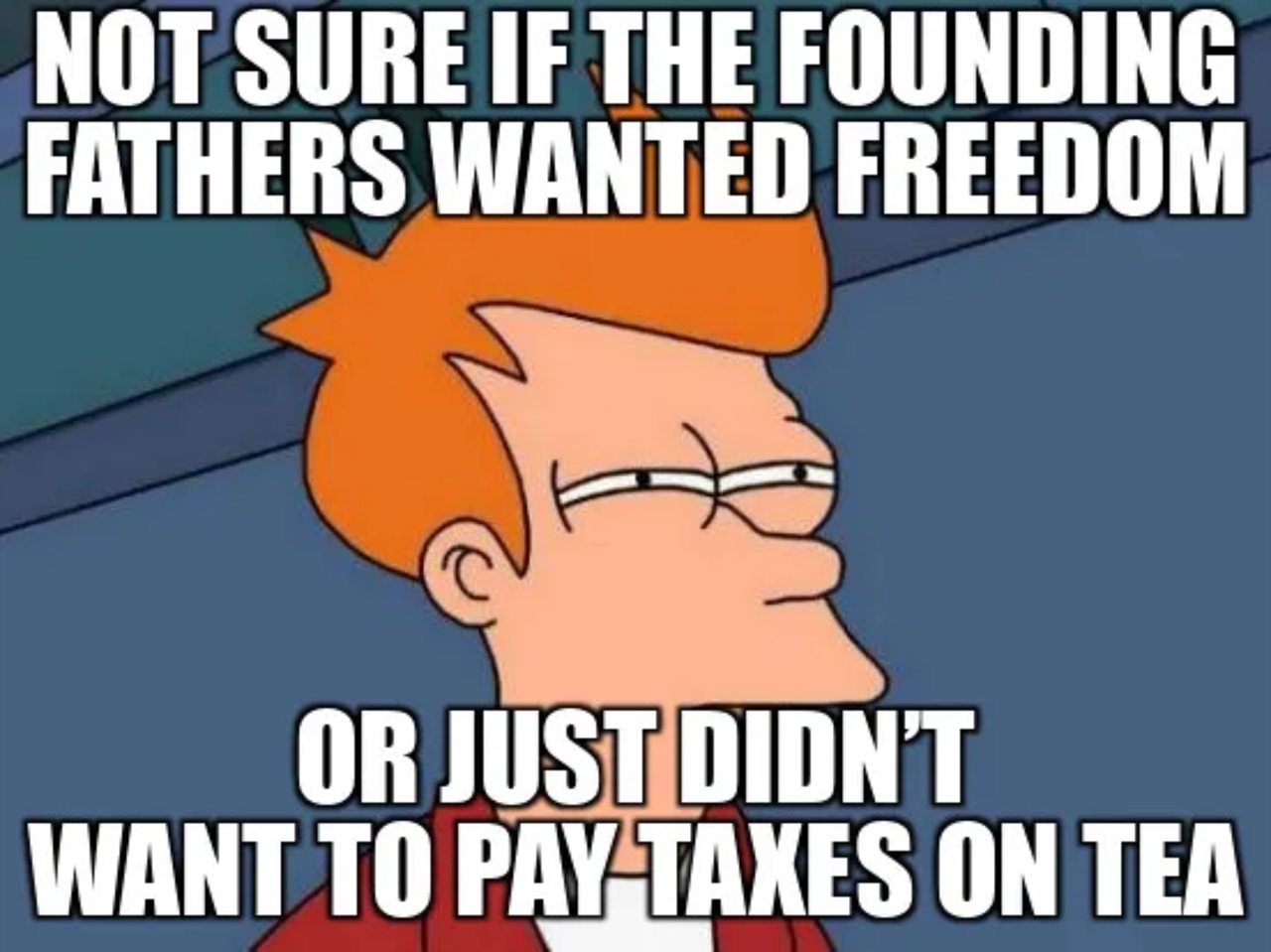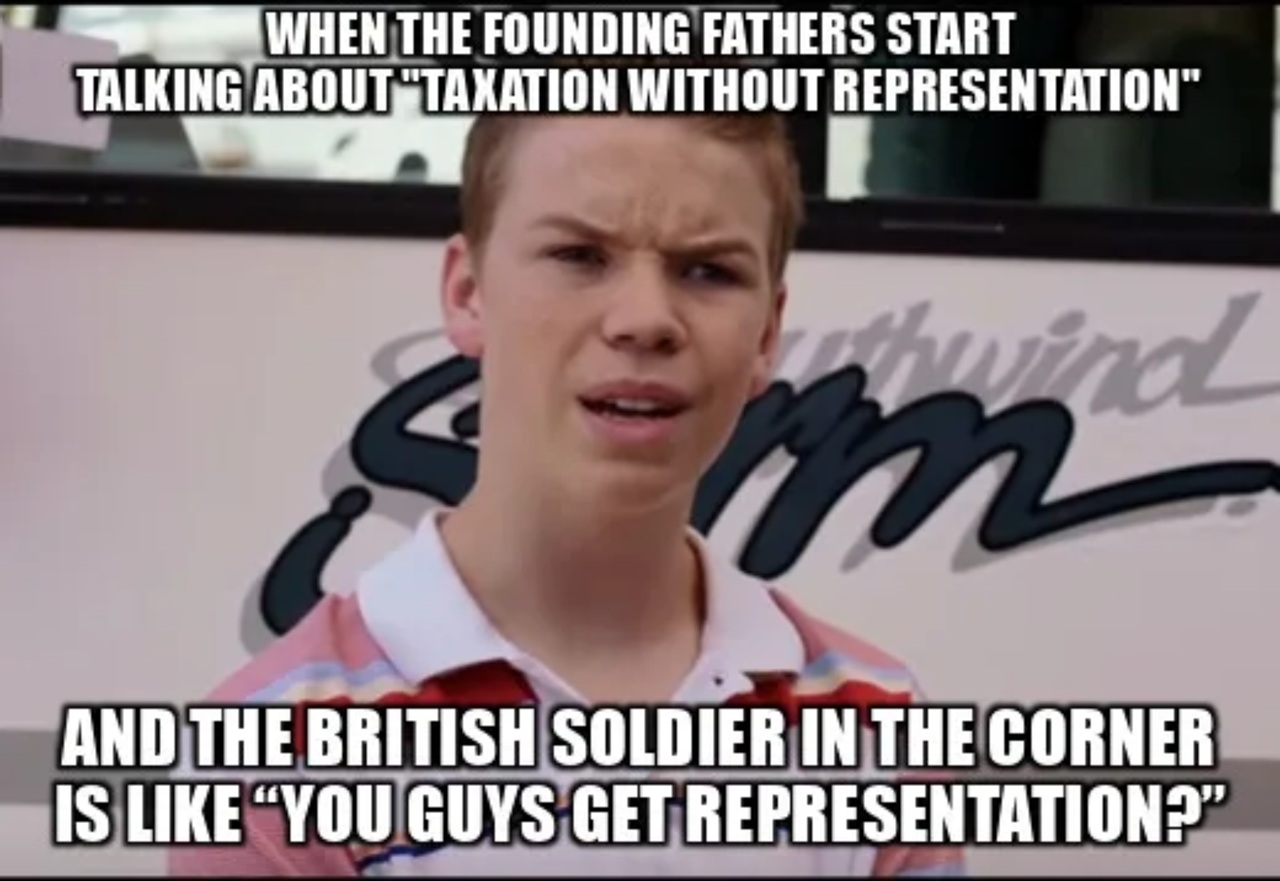
The Boston Tea Party (December 16, 1773) was a protest by American colonists against British taxation policies.
The main causes were:
- The Tea Act of 1773: This act gave the struggling British East India Company the right to sell tea directly to the colonies without paying most British taxes, allowing it to undercut colonial merchants. Colonists saw this as an unfair monopoly and a trick to make them accept Britain’s right to tax them.
- The Townshend Acts (1767): Earlier laws had already placed taxes on imported goods like glass, paint, paper, and tea. Though most of these taxes were repealed, the tea tax remained, symbolizing Britain’s claim to tax the colonies without their consent.
- “Taxation without representation”: Colonists objected to being taxed by the British Parliament, in which they had no elected representatives. They believed only their own colonial assemblies had the right to tax them.
- Growing resentment and organization: Groups like the Sons of Liberty in Boston led protests and boycotts. When the first tea ships arrived, colonists demanded the cargo be returned — and when the governor refused, they took matters into their own hands.
The Boston Tea Party Itself
On the night of December 16, 1773, about 100 colonists, many disguised as Mohawk Indians to conceal their identities, boarded three ships in Boston Harbor (the Dartmouth, Eleanor, and Beaver) and dumped 342 chests of British tea (worth roughly $2.36 million in 2025 dollars) into the water.
It was a nonviolent (well unless you were a chest of tea) but highly symbolic act of rebellion against British authority.
Results and Consequences
The event had major repercussions:
- The Coercive Acts (1774): Britain responded harshly with a series of laws the colonists called the Intolerable Acts, closing Boston Harbor, restricting town meetings, and allowing British troops to be housed in private homes.
- Colonial Unity: Outrage over these acts united the colonies more strongly against Britain. Other colonies sent aid to Massachusetts.
- First Continental Congress (1774): Representatives from twelve colonies met to organize resistance, marking a major step toward unified American action.
- Path to Revolution: The crisis escalated tensions that led to the American Revolutionary War in 1775, just two years later.
“Taxation Without Representation:” The Core Idea
This slogan captured the colonists’ belief that:
“Government should not impose taxes on a population without giving them a voice in how those taxes are decided and used.”
In Britain, Parliament represented British citizens, but the American colonists had no representatives there.
The colonists argued that since they had no representation in Parliament, Britain had no right to tax them.
They insisted that taxation should only come from their own elected colonial assemblies.
This principle became one of the foundations of American democracy and remains a powerful expression of the link between representation and legitimate government.
Some books on the subject:
- What Was the Boston Tea Party?
- Boston Tea Party: A History from Beginning to End
- American Tempest: How the Boston Tea Party Sparked a Revolution
More Boston Tea Party memes:


and finally:

This meme jokes about how few people in Britain itself actually had political representation in the 1700s.
At that time, most British citizens couldn’t vote or serve in Parliament, only wealthy male landowners could.
So, while American colonists were angry about “taxation without representation,” many ordinary Britons were also taxed without real representation either.
Leave a Reply